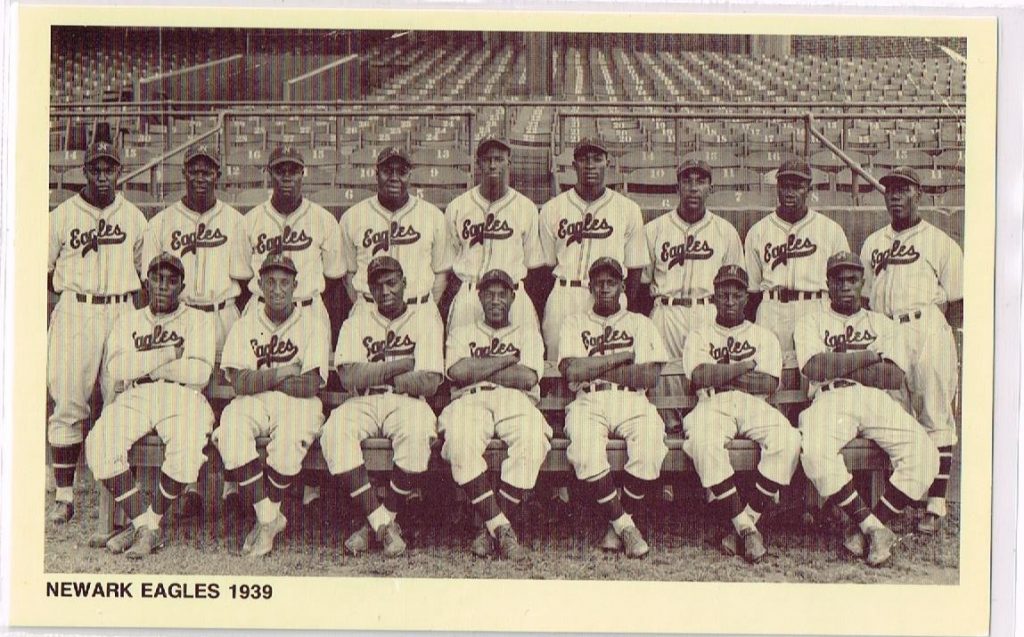I was a little nervous, like I always was at the beginning of a game, but after I got started, everything was all right
Leon Day
Though it was a shining moment for Day on the mound, a near-riot in the sixth inning — precipitated by a controversial call at home plate — and the concern about the impact that the event might have on the progress of baseball’s integration received equal attention. In light of the attention the game received at the time, one might think the game would be well-remembered, but like much of Negro Leagues history it fell into obscurity for many baseball aficionados.
The 1946 opener between the Eagles and the Stars at Newark’s Ruppert Stadium was a highly anticipated event. The Wilmington Morning News previewed Newark’s season by reporting that Eagles manager Raleigh “Biz” Mackey “has whipped a host of ex-GIs into shape for the coming race and feels certain that the Newark club will be in the thick of the pennant battle.” Day was one of those ex-GIs, a group that included Larry Doby, Oscar Givens, Monte Irvin, Clarence “Pint” Isreal, Max Manning, Charles Parks, and Leon Ruffin. The Army had drafted Day on September 1, 1943, and he had served in the 818th Amphibian Battalion — with which he had landed at Utah Beach on D-Day — before being discharged in February 1946.4 The big question surrounding Day now was whether he could resume his stellar pitching career where he had left off prior to his military service.
In addition to the Eagles’ high hopes for their pennant chances and Day’s return to the mound, the Newark Star-Ledger noted:
“A crowd of about 15,000 is expected to watch the two National Negro League combinations launch the season. The usual pre-game ceremonies and parade will attend the occasion. Mayor Vincent J. Murphy has proclaimed today as “Newark Eagles” Day by proclamation issued earlier this week.”

Leon Day is seen on the bottom row on the far left.
Effa Manley, who co-owned the Eagles with her husband, Abe, often solicited funds for various organizations during the team’s home games, and she had volunteers out in force to collect donations for the NAACP on this occasion. Before the start of the action, Deputy Mayor Barney Koplin tossed out the first pitch. Thus, although the crowd of 8,514 constituted little more than half the anticipated throng, the day was still a hallmark occasion.
Once the game began, the fans in attendance were not disappointed. Day admitted, “I was a little nervous, like I always was at the beginning of a game, but after I got started, everything was all right.” He overcame his jitters and pitched every bit as well as he had in his last all-star season of 1942. The Baltimore Afro-American enthused, “[T]he crack Bird flinger virtually handcuffed the opposition.” However, Day was locked in a mound duel with Philadelphia southpaw Barney Brown, who matched him zero-for-zero on the scoreboard through the first five innings…
This excerpt is from an article originally authored by Frederick C. Bush. You can read the full article at the Society for American Baseball Research.
